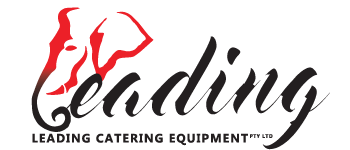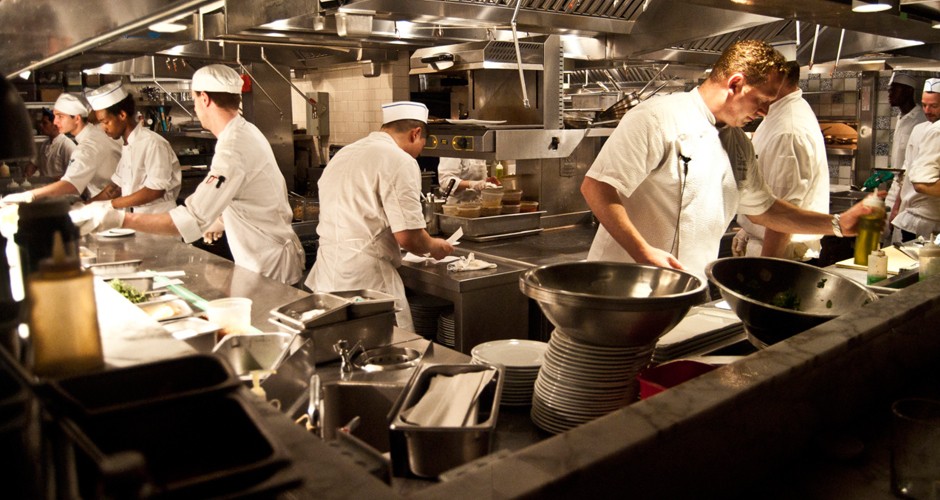Maintaining catering equipment is essential. It ensures durability and performance. However, improper maintenance can cause damage. Many businesses unknowingly make mistakes. These mistakes can result in expensive repairs.
Here, we'll discuss common maintenance mistakes and share tips to avoid them. Keep your commercial kitchen equipment in top shape.
Designed to handle large volumes and tough ingredients, these products provide powerful blending performance. Check out our Commercial Blenders collection now.
Ignoring the Manufacturer's Guidelines
The supplier offers specific policies for each piece of equipment. Ignoring them can cause damage. Some people skip reading the manual and assume all appliances work the same.
This is a big mistake. Each appliance has unique care instructions. Not following them can void warranties. It can also lead to malfunction.
Tip:
Always refer to the user manual. Train your staff to follow these instructions, and keep the manual handy for quick reference.
Using Harsh Cleaning Products
Cleaning is vital for catering appliances. However, using harsh chemicals can be harmful. Abrasive cleaners can damage surfaces and erode protective coatings.
For example, stainless steel surfaces can lose their shine, and glass panels may develop scratches. These damages affect not only appearance but also functionality.
Tip:
Use cleaning products recommended by the manufacturer. Opt for mild, non-abrasive solutions—test products in a small area before completing the application.
Skipping Regular Cleaning
Some people skip regular cleaning, which leads to grease and dirt buildup. Over time, this affects product performance, with clogged filters and vents being expected results.
This mistake also poses hygiene risks. Cleanliness is non-negotiable in catering, and skipping cleaning can lead to health code violations.
Tip:
Create a cleaning schedule. Assign responsibilities to staff. Ensure daily and deep-cleaning routines are followed.
Overloading Products
Overloading commercial catering equipment is a frequent issue. For example, filling an oven with too many trays or overstuffing a refrigerator strains the appliance.
Overloading reduces efficiency. It can also result in components to wear out quickly. For instance, motors and compressors may fail.
Tip:
Follow the recommended capacity—train staff to avoid overloading. If your workload increases, consider upgrading.
Neglecting Filters and Vents
Filters and vents play a critical role. They prevent dust and grease from clogging machinery; neglecting them can cause overheating.
Blocked vents reduce airflow, forcing the commercial kitchen equipment for sale to work harder, increasing energy consumption and shortening its lifespan.
Tip:
Clean filters and vents regularly. Check for blockages during maintenance. Replace filters as recommended.
Delaying Repairs
Minor issues can escalate quickly. A loose screw or a minor leak may seem harmless. Ignoring them is a common mistake.
Delaying repairs can lead to more significant problems. For example, it may result in a model breakdown, which can disrupt operations.
Tip:
Address issues as soon as they arise. Conduct routine inspections—partner with a reliable repair service.
Not Training Staff Properly
Staff play a crucial role in product care. Untrained employees can misuse the appliance, press the wrong buttons or use improper techniques.
This issue leads to wear and tear. It can also increase the danger of mishaps.
Tip:
Provide thorough training to all staff. Include equipment handling in onboarding programs. Offer refresher courses periodically.
Using the Product for the Wrong Purpose
When you shop commercial kitchen equipment, you know that it is designed for specific tasks. Using it for the wrong purpose is risky, such as using a food processor to crush ice or an oven to dry clothes.
Such misuse can damage internal components. It may also void the warranty.
Tip:
Use the model as intended. Invest in specialised tools for unique tasks. Educate staff on proper usage.
Forgetting to Check Temperature Settings
Temperature settings are crucial. Incorrect settings can harm the appliance, such as running a freezer at too low or too high a temperature.
This issue can affect food safety. It also forces the compressor to overwork.
Tip:
Regularly check temperature settings. Use a thermometer for accuracy—Calibrate equipment as needed.
Improper Storage of Equipment
Some new or second-hand kitchen equipment is seasonal. Improperly storing it can cause damage, exposure to moisture can lead to rust, and leaving items uncovered invites dust.
Improper storage shortens the product's lifespan.
Give your food a unique smoky, charred flavour that is particularly desirable for grilling meats, vegetables, and seafood. Browse our Chargrill Stoves now.
Tip:
Store the offering in a dry, clean area. Covers should be used to protect from dust. Maintenance should be performed before and after storage.
Skipping Professional Servicing
Regular servicing is often overlooked. Many businesses skip it to save costs. However, this is counterproductive.
Professional servicing detects hidden issues. It ensures optimal performance. Skipping it increases the risk of breakdowns.
Tip:
Schedule professional servicing annually. Work with certified technicians. Keep a log of maintenance activities.
Not Checking Electrical Connections
Loose or faulty electrical connections are dangerous. They can damage the product. Worse, they pose a fire risk.
Some businesses fail to inspect electrical connections. This mistake can have serious consequences.
Tip:
Inspect connections during maintenance. Replace damaged cords immediately. Use surge protectors to safeguard electronics.
Using Equipment Without Preheating
Many commercial kitchen equipment, such as ovens and grills, require preheating. Skipping this step can cause uneven cooking and strain the offering.
Some users ignore preheating to save time. This habit can reduce efficiency and lifespan.
Tip:
Always preheat the device as instructed—train staff to follow this practice. Include preheating time in your workflow.
Improper Handling of Moving Parts
Catering appliances often has moving parts like blades, belts, and rotors. Mishandling these can cause damage.
Many people forget to lubricate or align moving parts. This problem leads to wear and malfunction.
Tip:
Inspect moving parts regularly—Lubricate as per the manual. Replace worn-out components promptly.
Relying on DIY Fixes
DIY adjustments with commercial catering equipment can do more damage than good. While they may seem cost-effective, they're risky, and unqualified repairs can worsen the problem.
It may also void warranties or create safety hazards.
Tip:
Always rely on certified technicians. Avoid temporary fixes or shortcuts. Invest in professional repairs.
Neglecting Calibration
Calibration ensures accuracy. For example, ovens and scales need proper calibration. Ignoring it leads to inconsistent results.
Uncalibrated equipment can waste time and resources. It also affects customer satisfaction.
Tip:
Calibrate equipment as recommended. Use professional services if needed. Maintain records of calibration dates.
Get impulse purchases and higher sales with features of transparent doors and well-lit interiors, making it easy for customers to see the products. Check out our Display Freezers here.
Allowing Equipment to Overheat
Overheating is a common issue. It happens when cooling systems fail. Dirty filters or blocked vents can cause this.
Overheating damages internal components. It can also result in total failure.
Tip:
Monitor commercial kitchen equipment for sale for signs of overheating—clean vents and fans regularly. Turn off unused equipment to cool down.
Conclusion
Proper maintenance is the key to longevity. To safeguard your investment, bypass these routine errors. Train your staff and follow guidelines. Schedule regular servicing and inspections.
Caring for your catering equipment ensures smooth operations and saves costs in the long run. Keep your kitchen running efficiently and safely.






